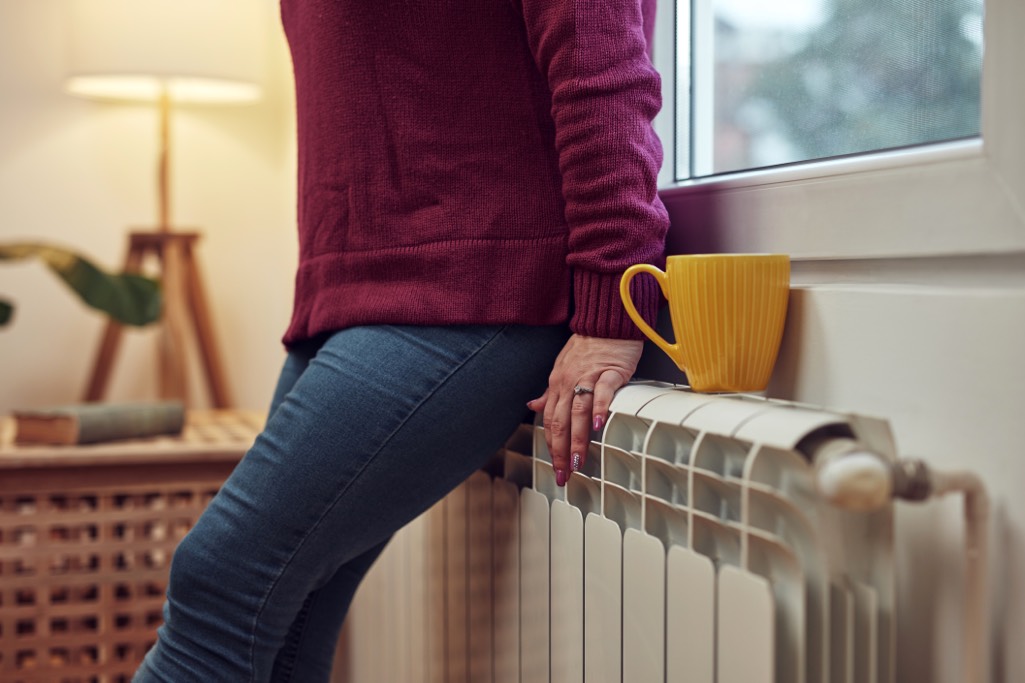When most people talk about heat pump systems they are talking about air to water heat pumps. For many reasons, these are the most common type of heat pump installed in the UK. But are these heat pumps right for you? Read on for an in depth look at this type of system.
How a heat pump works
Heat pumps capture heat outside your home, compress it, and then transfer it inside. Air source heat pumps take heat from the air outside your home, while ground source heat pumps take heat from the ground.
Air to air heat pumps transfer this heat by pumping hot air into your home. They work well for houses with lots of big open plan rooms and space to run ducting pipes. Generally speaking , air to air heat pumps are the easiest type to install. But they cannot heat your hot water. That’s where air to water heat pumps step in.
Air to water heat pumps are the most common type of heat pump in the UK. They collect heat from the outside of your home and use it to heat hot water inside. Essentially, they work like a fridge in reverse.
The heat pump uses a coolant to collect heat from the air outside. This coolant is then compressed and passed through a heat exchanger, where it transfers its heat to a hot water tank. This hot water is then used to radiate heat via radiators or underfloor heating – just like a traditional gas boiler system. Hot water can also be stored in a cylinder for showers and baths.
How efficient are air to water heat pumps?
In short, very. Air to water heat pumps beat air to air heat pumps on efficiency.
We measure the efficiency of heat pumps by something called the Coefficient of Performance, and it’s cousin the Seasonal Coefficient of Performance. The Coefficient of Performance expresses the efficiency of the energy output of a device.
This is a useful measure when calculating efficiency on a one-off basis. However, for air source heat pumps a more accurate measure is SCoP – the Seasonal Coefficient of Performance. This takes temperature fluctuations into account to give an average efficiency for the whole year.
Air-to-air heat pumps have a SCoP of 3.5-5, meaning that they produce 3.5-5 times more energy than they consume. This is incredibly efficient, especially when compared with the average CoP of 0.9 for a traditional gas boiler.
The average SCoP for an air-to-water heat pump system is 2.5-4, meaning that they produce 2.5 to 4 times more energy than they consume. This figure is lower than the SCoP for an air-to-air heat pump. But comparing the SCoPs of the two side by side is not a fair comparison. An air-to-air heat pump is unlikely to be supplying the heating for the entire home. You will still need an additional heating source for your hot water.
The overall SCoP of a house using a combination of air-to-air heating alongside a traditional boiler, or electric cylinder, will be much lower than that of a house using an air-to-water heat pump system alone.
What are the advantages of air to air heat pumps?
With an air to water heat pump, you will not need another solution to produce hot water for your home. This is a great advantage whether you’re installing the system from scratch (in a new project) or as a retrofit (in place of an existing system).
If you’re looking at a retrofit project, an air to water system will often dovetail into a traditional gas heating system. In many cases you’ll be able to simply remove your gas boiler and install a heat pump. Rather than using the gas boiler to heat your radiators your heat pump will do the same job.
Of course, life it not always that simple. Depending on the type of house you have and the existing heating system installed, you may need to make upgrades to your radiators and/or your home’s installation. We cover this in more detail below. If you have a combi boiler you may also need to install a cylinder to store domestic hot water for showers and baths.
What are the disadvantages of air to water heat pumps?
The main disadvantage of an air to water system is cost. These systems are more expensive to install. As mentioned above, you may also require other upgrades to your home or your heating system which can push the costs up.
Air to water heat pumps and radiators
Are you looking to replace a gas boiler with a heat pump? As we’ve mentioned, one of the main advantages of an air to water system is that you may be able to use your existing radiators. But this will depend on the type of radiators you already have installed.
Generally speaking, heat pumps are designed to run at around 35/40°C. This is significantly lower than gas boilers, which are generally optimised to run at 65/70°C. To get the same amount of warmth in your home, you will need to have more powerful radiators, with more surface area to radiate heat.
The good news is that heating engineers often over specify radiators when installing gas systems. They put in radiators that are more powerful than necessary. This means you may not need to replace your radiators when installing an air to water heat pump.
We’ve written further on this in our article “Air source heat pump radiators”.
Do I need underfloor heating?
Underfloor heating works beautifully with an air to water heat pump. It distributes the heat over a large area. Plus you won’t have to take up wall space with radiators. However, unless you’re building a new house, or doing a big renovation project, laying down underfloor heating can be a large undertaking. Please see our article “Heat pumps and underfloor heating” for more information on this.
Is my home suitable for an air to water system?
Of course, there is no point generating heat in the most efficient way possible if you lose it all through poor insulation in your home. Because a heat pump works at a lower temperature than a traditional gas boiler, it becomes all the more important to conserve the heat it produces.
As we’ve stated elsewhere on the site, the answer to the question above depends on a few factors – the design fabric of your home, how old it is, how well it retains heat and how much space you have.
If you live in an older, less energy efficient home you may need to make some upgrades. Please check our articles on “Is my house suitable for a heat pump” and “How much does an air source heat pump cost” for more information.

